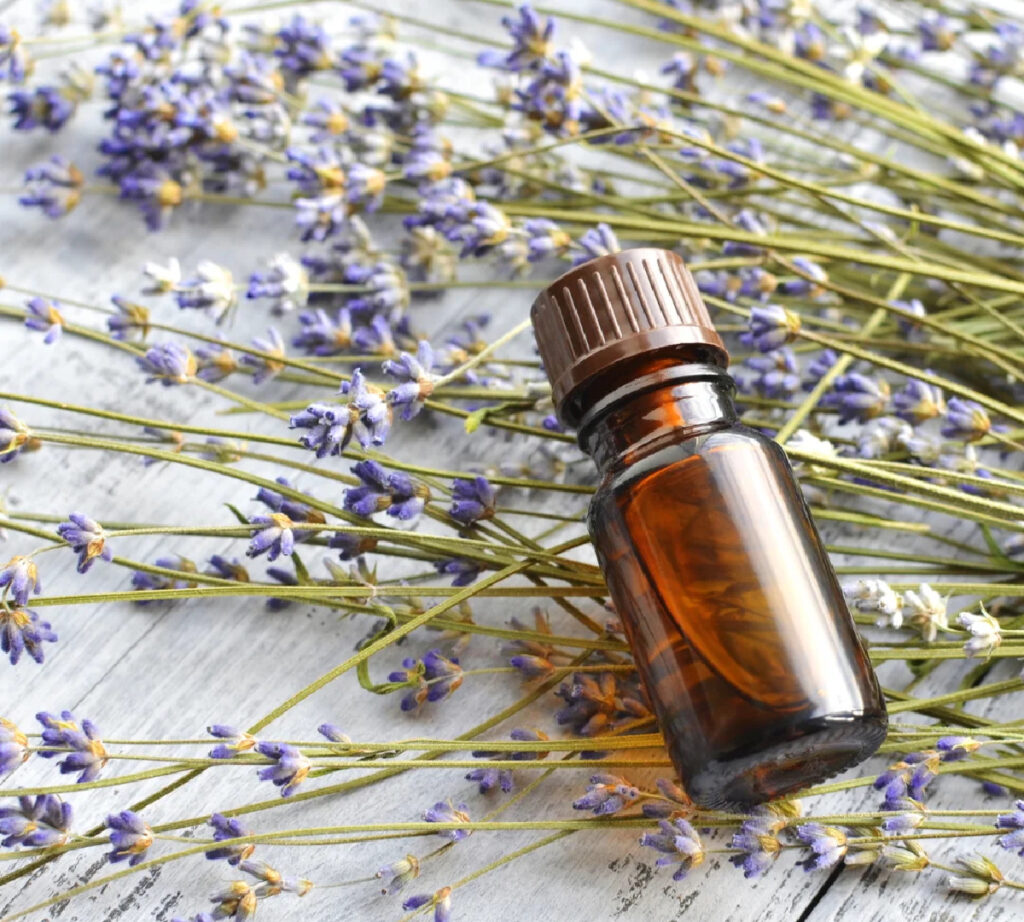Herbs & Essential Oils for Peripheral Neuropathy Support
Peripheral neuropathy affects an estimated 20 million people in the United States alone. Often caused by diabetes, chemotherapy, autoimmune disease, or circulatory disorders, this nerve damage can result in pain, numbness, and even loss of function.
While there is no cure for peripheral neuropathy, natural and holistic treatments may offer relief and support the body’s healing process.

We first published this article in 2018, and it became one of our most-requested resources. Since then, new research has emerged on supportive herbs, essential oils, and supplements that may complement conventional treatment. Below, we’ll explore natural remedies for neuropathy, including an updated look at the evidence.
What is Peripheral Neuropathy?
Peripheral neuropathy is a condition resulting from damage to the peripheral nervous system. The peripheral nervous system is the network of nerves that transmits information from the brain and the spinal cord to every other part of the body.
These nerves become damaged by any number of things:
- Physical injury
- Repetitive Stress
- Diabetes or other disorders of the endocrine system
- Diseases of the circulatory system
- Autoimmune diseases such as lupus, rheumatoid arthritis, Guillain-Barre syndrome
- Cancer and/or chemotherapy treatments for cancer
- Poisons or other toxic substances
- Certain medications
- Shingles (postherpetic neuralgia)
Ultimately, any condition impairing blood flow to the nerves and depriving them of the oxygen and nourishment provided by blood flow can lead to neuropathy.
It’s like depriving a plant of water. That plant is going to die. When the nerves become damaged because they have no oxygen, peripheral neuropathy is the result.
Symptoms of Peripheral Neuropathy
Not all patients have all symptoms but the most common are:
- Numbness and tingling
- Prickling sensation
- Muscle weakness
- Heightened sensitivity to touch (e.g., discomfort from bed sheets)
- Burning or stabbing pain
- Muscle wasting and atrophy
- Impaired digestion, urination, sexual function
Conventional Treatments for Peripheral Neuropathy
Conventional approaches typically involve:
- Medications: NSAIDs, anticonvulsants, antidepressants, or opioids
- Topical agents: lidocaine patches or capsaicin cream
- Identifying and treating the underlying cause
- Optimizing diet and exercise
Natural Alternatives for Peripheral Neuropathy
Natural and holistic alternatives give the body what it needs to get back to balance and heal itself. Rather than just addressing symptoms, you address the root cause of the problem and have a better chance of not having recurring symptoms. You don’t just take a pill, feel better… and then the problem starts all over again.
1. Essential Oils for Peripheral Neuropathy
While essential oils do not treat neuropathy directly, they may reduce symptoms and support circulation, inflammation reduction, and pain relief.
Here’s a DIY essential oil blend for peripheral neuropathy Green Child’s herbalist, Susie Bryan, created. She explains, “I have seen essential oils truly benefit my husband and my friend at MDAnderson Cancer Center with their neuropathy symptoms.”
DIY Topical Blend:
- 1 part organic coconut oil (carrier oil)
- 3 parts Frankincense essential oil (anti-inflammatory)
- 3 parts Cypress essential oil (supports circulation and reduces swelling)
- 1 part Lavender essential oil (calming and supports skin healing)
Store in a dark glass dropper bottle. Apply several drops to affected areas morning and night. Massage gently.
Other essential oils that may help peripheral neuropathy:
- Peppermint (cooling, anti-inflammatory)
- Roman Chamomile (soothing, analgesic)
- Helichrysum (supports tissue repair)
- Lemongrass (stimulates circulation)
- Geranium (balancing and regenerative)
- Valor (balancing, comforting)
A blend of any of these oils may help to provide relief from neuropathy symptoms and help the body get back to balance and begin to heal itself.
More research has reinforced the potential of essential oils in neuropathy support. A 2023 pilot randomized controlled trial found that essential oils used over six weeks showed pain-reducing effects. A separate study using aromatherapy massage with lavender oil in diabetic patients reported reduced neuropathic pain and improved quality of life.
A 2022 review identified specific active components of oils that may modulate pain signaling, though many of these studies are preclinical. Additional reviews list lavender, bergamot, rosemary, nutmeg, and even Billy goat weed as frequently studied oils. Still, there is no standardized dosing and human data remains limited. Mechanistic studies suggest some essential oils may have neuroprotective and neurotransmitter-modulating effects.
You can also diffuse essential oils aromatically for relaxation and nervous system support.
2. Herbal Remedies
Some herbs traditionally used for nerve pain and inflammation include:
Turmeric – Contains curcumin, a powerful anti-inflammatory compound that may help reduce nerve pain and oxidative stress.
Feverfew – May help relieve nerve-related headaches and reduce inflammation in nerve tissues.
Oatstraw – Nourishes and calms the nervous system, helping to reduce sensitivity and support nerve repair.
Skullcap – Known for its calming and antispasmodic properties, which may ease nerve tension and pain.
Passionflower – Helps relax the nervous system and reduce pain perception by calming nerve activity.
Ginger – Acts as an anti-inflammatory and circulatory stimulant, potentially reducing nerve pain and improving blood flow.
Comfrey (topical use only) – Supports tissue regeneration and may provide localized relief for nerve pain and inflammation.
Recent studies have expanded our understanding of how herbs may support neuropathic pain. A 2024 review of botanical interventions highlighted herbs like saffron (Crocus sativus) and Cannabis sativa for their potential to modulate inflammation, oxidative stress, and pain signaling pathways.
Traditional Chinese herbal formulas such as Jinmaitong (JMT) have also shown some promise in improving nerve conduction and reducing symptoms. Common TCM herbs studied include Astragalus membranaceus, Ligusticum wallichii, Poria cocos, and Rehmanniae.
Fenugreek (Trigonella foenum-graecum) extract has shown effectiveness in animal models of neuropathy, and herbs like Ginkgo biloba and even sweet bee venom have been explored in early human and case studies. A broader review also lists comfrey, rose oil, lavender, and ginger oil among botanical agents of interest.
Always consult a clinical herbalist for proper dosing and combinations suited to your constitution.
3. Vitamins and Nutrients
Several vitamins and nutrients are crucial for nerve health:
- B Vitamins (B1, B6, B12): Deficiencies can cause or worsen neuropathy. Methylated forms may be more bioavailable.
- Vitamin D: Supports immune and nervous system function.
- Alpha-lipoic acid (ALA): An antioxidant shown in clinical trials to improve symptoms of diabetic neuropathy. (source)
- Acetyl-L-carnitine (ALC): May improve nerve regeneration and reduce pain in some individuals.
- Magnesium and Zinc: Support nerve function and reduce oxidative stress.
4. Additional Natural Supportive Therapies
- Acupuncture and yoga have shown promise in small studies for reducing neuropathic pain. (source)
- Red light therapy may help improve circulation, reduce inflammation, and support cellular regeneration in damaged nerves.
- Epsom salt or warm salt foot baths may ease discomfort in the feet.
- Palmitoylethanolamide (PEA): A naturally occurring fatty acid that may help with chronic nerve pain.
- Adaptogens like ashwagandha or rhodiola may support stress resilience and nervous system regulation.
- Lifestyle and exercise changes like glycemic control, cardiovascular health, anti-inflammatory diet, and regular movement are core to slowing neuropathy progression. (source)
- CBD oil may help ease neuropathic pain by reducing inflammation, modulating pain pathways, and supporting relaxation through the endocannabinoid system. Find more on the benefits of CBD oil (especially for women) here.
A Final Word on Holistic Care
Peripheral neuropathy can be a complex and frustrating condition, but there is hope in a multifaceted, natural approach. While none of these remedies are a cure, they may offer meaningful relief and support your body’s healing process when used consistently and with professional guidance.
Always consult your healthcare provider before beginning any new supplement or alternative therapy, especially if you are managing chronic illness or taking medication.
If you’ve found natural support for neuropathy that works for you, we’d love to hear your story.


How often should I massage the essential oil onto my feet? I have peripheral neuropathy.